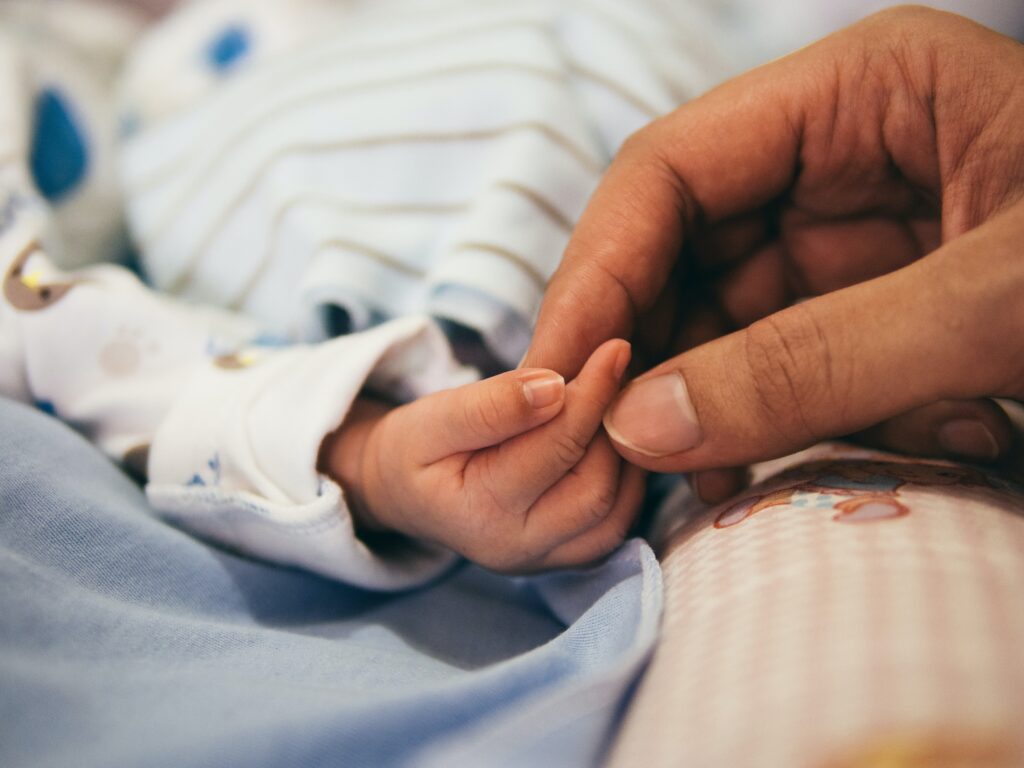Why same-sex couples should see an infertility specialist
You want to have a baby. You’re excited and maybe a little nervous about expanding your family. You’re ready to take the first step to make it happen.
If you’re wondering what exactly that first step is — let’s get back to the basics. Not to oversimplify, but there are actually only three things needed to have a pregnancy occur:
Sperm. Egg. Uterus.
Depending on which of those three things you (and/or your partner) have and which you may need, you will also likely need a fertility specialist. Or is that an infertility specialist?
Does it matter what we call it? Fertility or infertility? It does matter, at least in terms of insurance coverage. Currently, infertility is defined as the inability to become pregnant after 12 months of exposure to sperm, or due to an impairment of a person’s capacity to reproduce either as an individual or with his partner. Although that may be changing soon, thanks to the hard work of many legislators and advocates. Around the country, in and out of the courts, this definition is being challenged to include ALL people who want to build their families and need the attention of a medical professional.

If you’re a member of the LGBTQ+ community; that doesn’t necessarily mean you are infertile, as defined by reproductive disease. So why the assumption that you will need a fertility specialist?
Regardless of what your sexual orientation is or how you identify your gender, those three things listed above are what we all need to have a baby. And if you need to rely on the help of a donor (egg or sperm) or a gestational carrier to build your family, the guidance of an LGBTQ+ inclusive fertility practice can make all the difference for your journey.
What is Third Party Reproduction?
While the process does become more complicated if you are missing one or more of the three necessary family-building puzzle pieces (sperm, egg, or uterus), there are teams who can help you through those steps. When you need to have a third person involved in the process of family building, here in the fertility space, we call it third party reproduction. The best definition that I know of comes from RMA of Connecticut’s team members Diana D’Amelio, Nora Bolger, and Monica Moore.

Here’s how they describe it: “Third party reproduction is a term used when another person is involved for any of the following: egg source, sperm source, or uterus — or a combination of all of these. In some cases, such as when a same-sex male couple would like to have a child, we would use a donor for the eggs and a gestational carrier for the uterus.”
That’s where an experienced fertility specialist (also known as a reproductive endocrinologist) comes in. These physicians have the experience to coordinate your care and help you find reliable sources for any additional puzzle pieces that your journey may require.
In the words of our third party team members, Diana, Nora, and Monica: “You want to locate a fertility practice that has a specialized, multi-disciplinary team with years of experience. As a result, they will have refined their process so that they are well-organized and knowledgeable. Preferably, the practice would get to know egg donors and intended parents well, and provide personalized, individual attention.”
How Can Infertility Specialists Help You?
Your chosen fertility practice would be involved every step of the way in finding donors (egg or sperm) and/or gestational carriers as needed. Locating a practice that has helped members of the LGBTQIA+ community is paramount to your comfort and ultimately, your success. It’s not enough for a practice to say that they help and support the LGBTQIA+ community, you’ll want to see proof that the REI practice has been vocal and visible in community affairs and organizations.
One of the most reliable ways to see how a practice has treated members of the LGBTQIA+ community is by looking up that practice in the Healthcare Equality Index. (The Human Rights Campaign’s educational arm that evaluates health care providers and healthcare facilities and rates them on their LGBTQIA+ inclusivity, specifically designating those providers that reach the highest level, earning a score of 100, as a LGBTQ Healthcare Equality Leader.)

The Language of LGBTQ+ Family Building
It’s important to talk about uteruses, oocytes (eggs), and sperm in a respectful and open way — no matter what type of help you require to build your family. If you’re using an egg donor or sperm donor to build your family, your choice of donor is important, no matter whether your donor is anonymous or known. For those using a surrogate, or gestational carrier, there is a separate set of common concerns and questions.
Contrary to one common worry, a gestational carrier does not want to bring home the baby that she carries — she has her own family, although she is happy to help you build yours. Research actually shows that women, on the whole, do not feel demeaned as gestational carriers.
In fact, quite the opposite. Gestational carrier Nicky Haynes shared her story of carrying a baby and offering the joy of parenthood to someone else. They do not feel like incubators — the relationship between intended parents and surrogates is often a loving one based on trust, that may continue long after the baby’s birth.
While the process may sound complicated, open communication, realism, and patience are clear necessities to make the process of family building work. And while there are many layers of teamwork, trust, respect, and responsibility, plus a host of medical and administrative professionals who can’t wait to help you build your family, there are still just three things that you need to build your family. There is simply no way that babies enter this world in any other way, and there is nothing more natural than getting back to those three basics: Sperm. Egg. Uterus.
If the first step to creating a family is knowing that you need those three things, the second step is knowing that help is out there, no matter who you are. Even if family building seems overwhelming, we’re here to help you. One step at a time.
Finding an LGBTQ+ inclusive provider can make all the difference when starting your family. Learn how to find the best fertility practice for LGTBQ+ couples here.

About the Author
Working with Gay Parents to Be (GPTB) at Reproductive Medicine Associates of Connecticut (RMACT) as Patient Advocate, Blog Writer and Editor in-Chief gives Lisa Rosenthal an opportunity to expand her passion and commitment to reproductive health and family building. Currently Lisa channels her passion for LGBT rights in actively seeking out the most highly regarded leaders in various aspects of the process (medical, legal, societal, medical and emotional for example) to write and comment on the quickly changing, and often confusing, family building news. That goal serves the purpose of GPTB having the most up to date and accurate information in making decisions when expanding your family. Lisa has been in the reproductive rights field for over thirty years, first as a patient who needed fertility treatment and then as an outspoken patient advocate. Having worked in the not for profit patient field for over twenty years, she brings a comprehensive understanding of all the options there are to choose from to build a family. On GPTB, you will find content that includes building your family via all kinds of surrogacy, donor sperm, fertility preservation (ensuring that if a person is transitioning from an assigned gender, eggs or sperm can be retrieved for future family building), fostering a child, adoption and more. Lisa is committed to supporting all families in having the families that they desire, in the ways that work best for them.
This article was first published at Gay Parents To Be.






